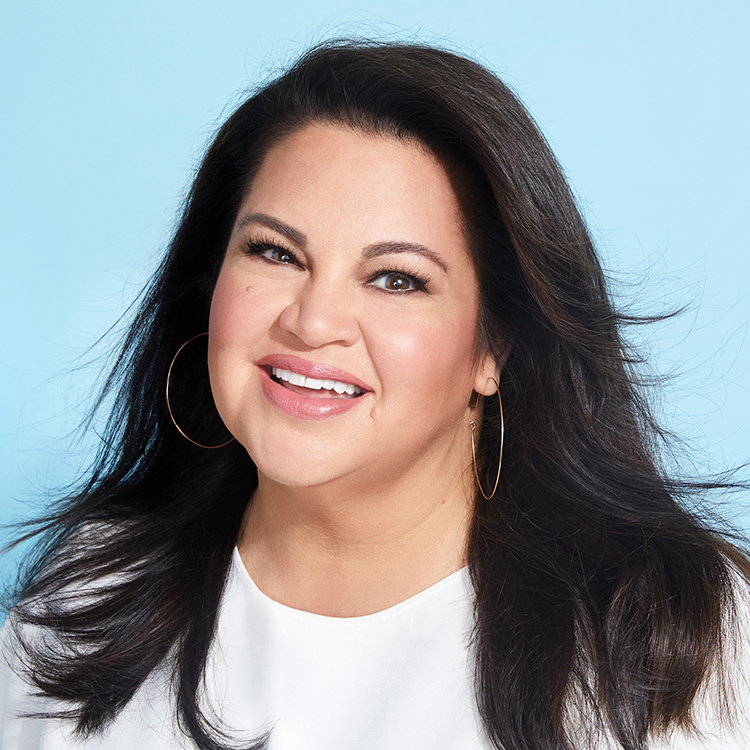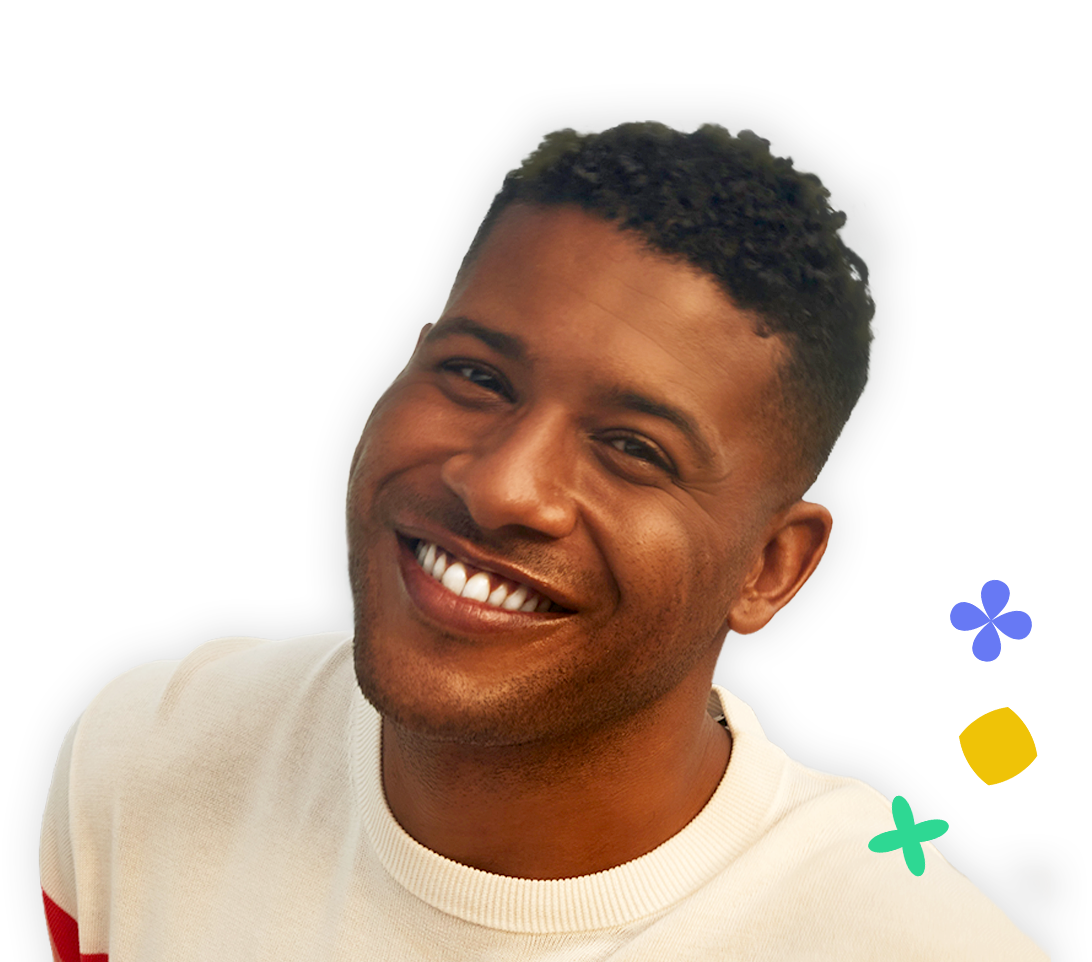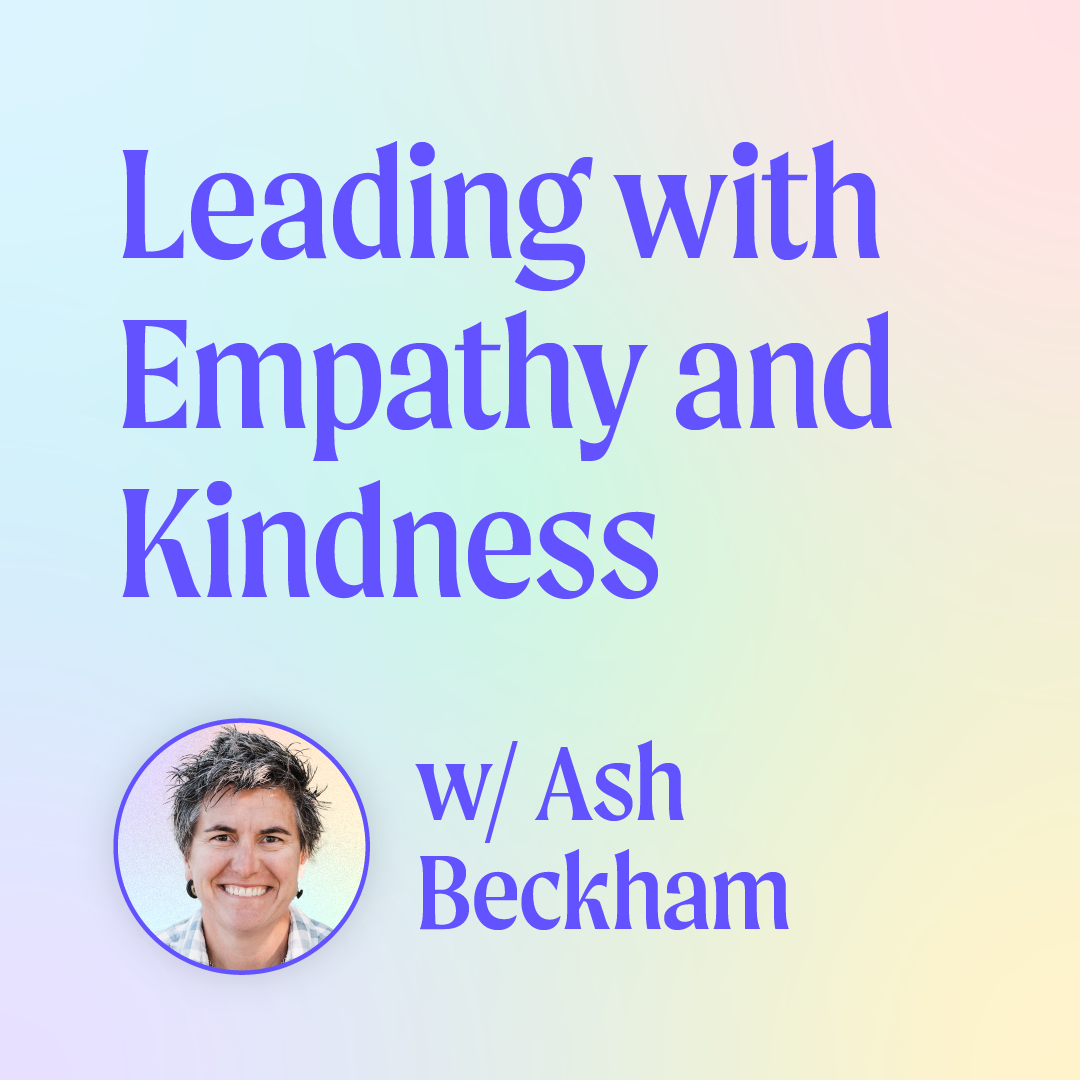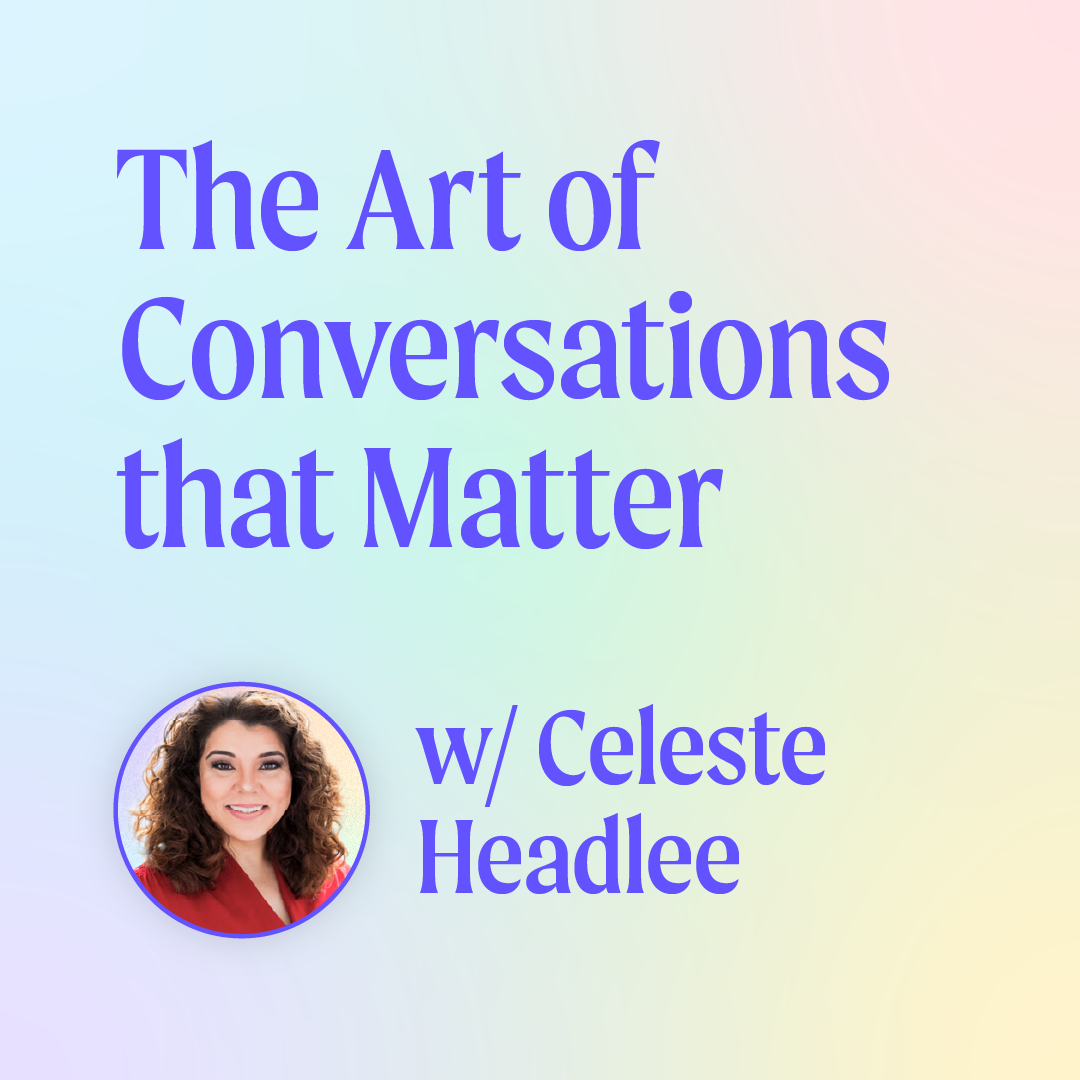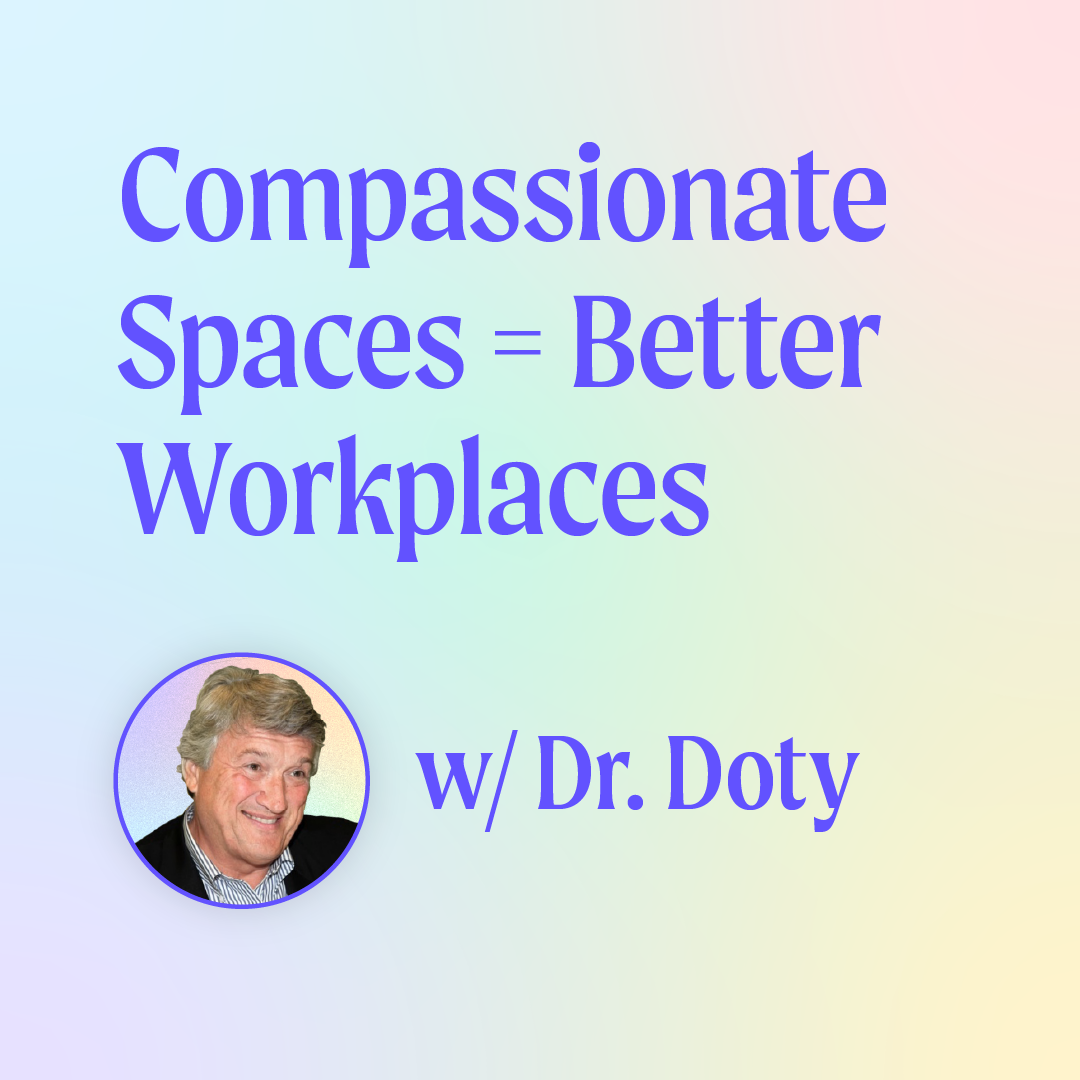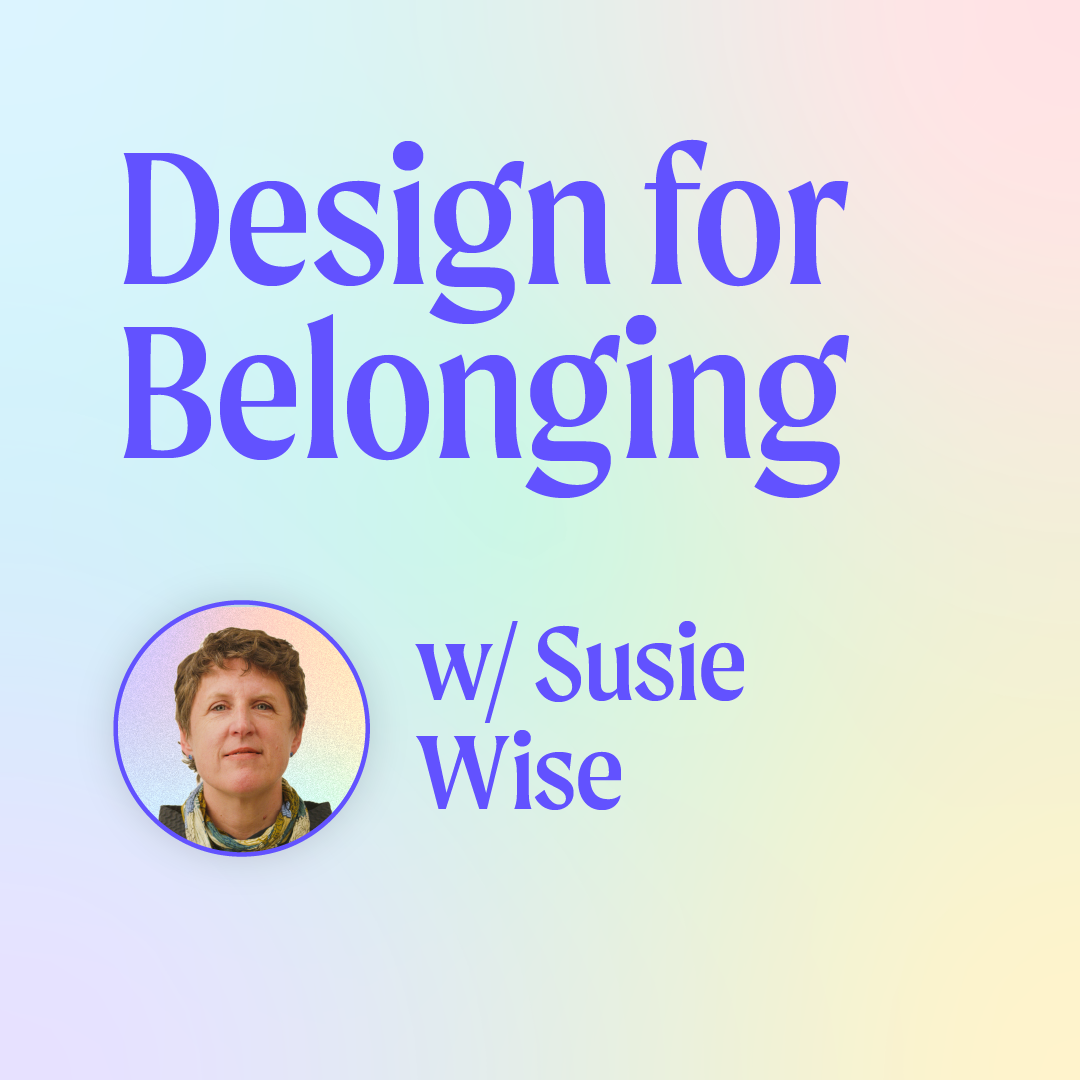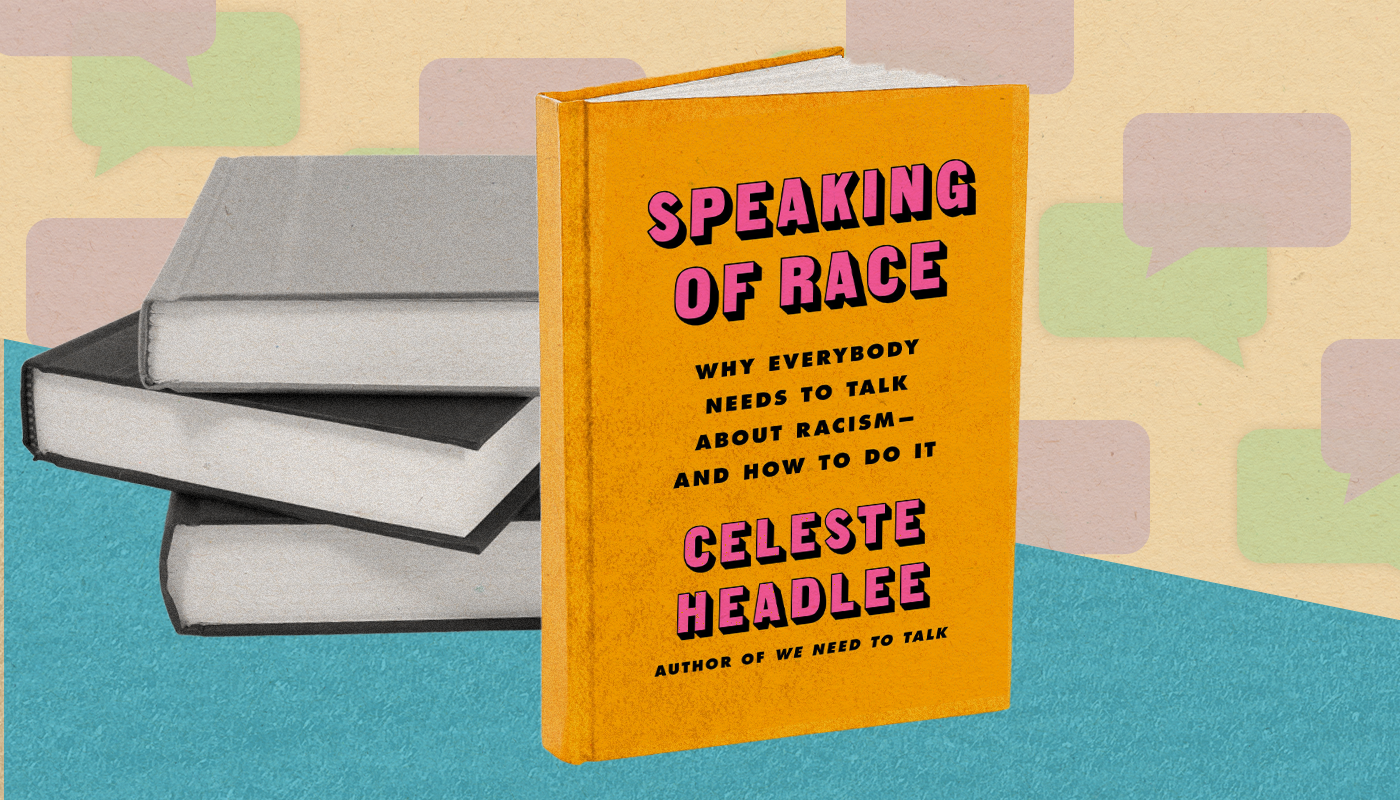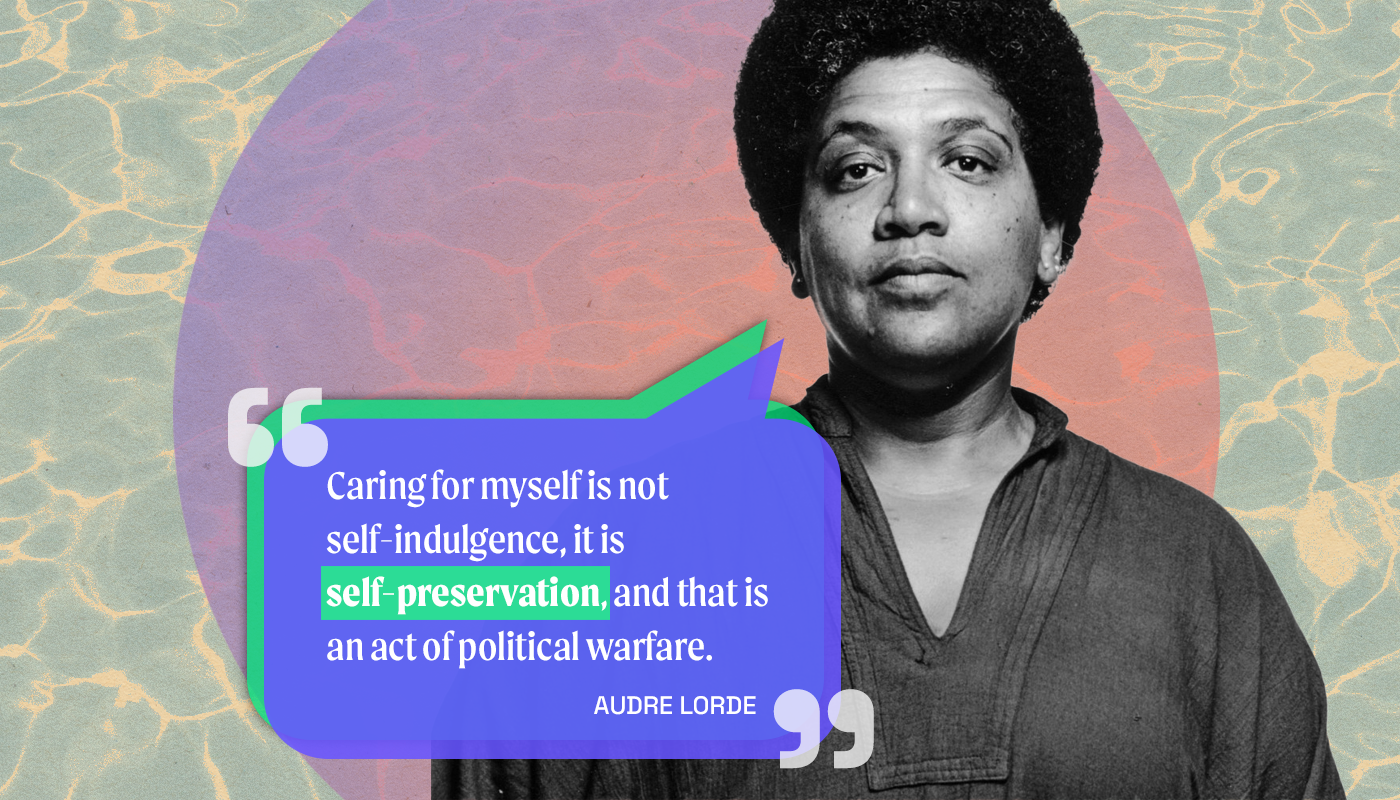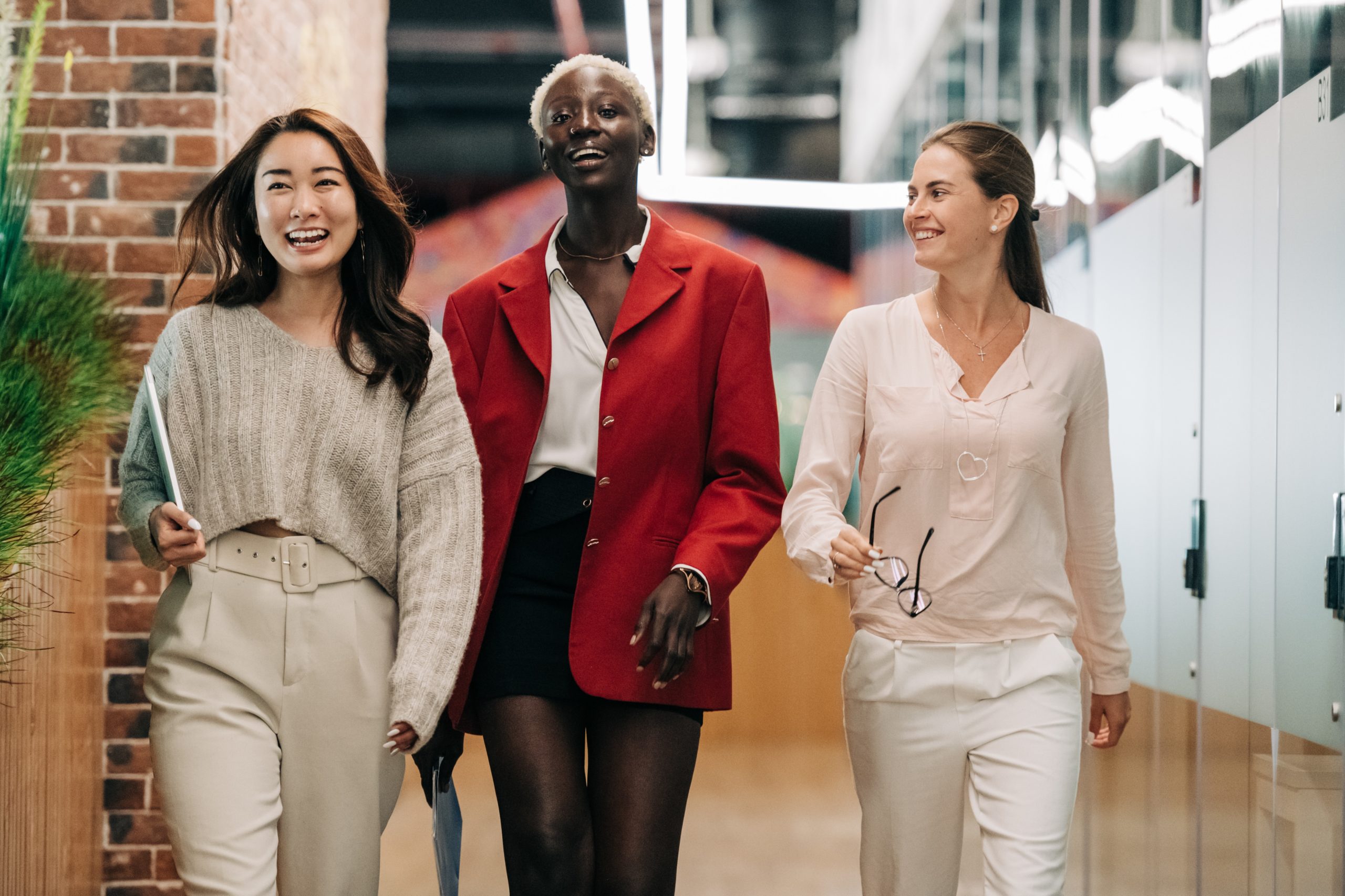You’re Hired: Promoting Inclusive Hiring Practices in the Workplace
Episode Description
It’s no secret that the workforce is in the midst of major shifts as companies come to terms with their own blind spots. But even the most well-intentioned employers are still making missteps along the way. So how can we continue challenging these employers to actually be more inclusive in their hiring practices, rather than just lip service? On this episode of IncludrPod, Jeffrey sits down with Christy Haubegger, the Executive Vice President of Communications and the Chief Enterprise Inclusion Officer at WarnerMedia to discuss unconscious bias in the workplace and how companies can adopt more inclusive hiring practices.
On Air With
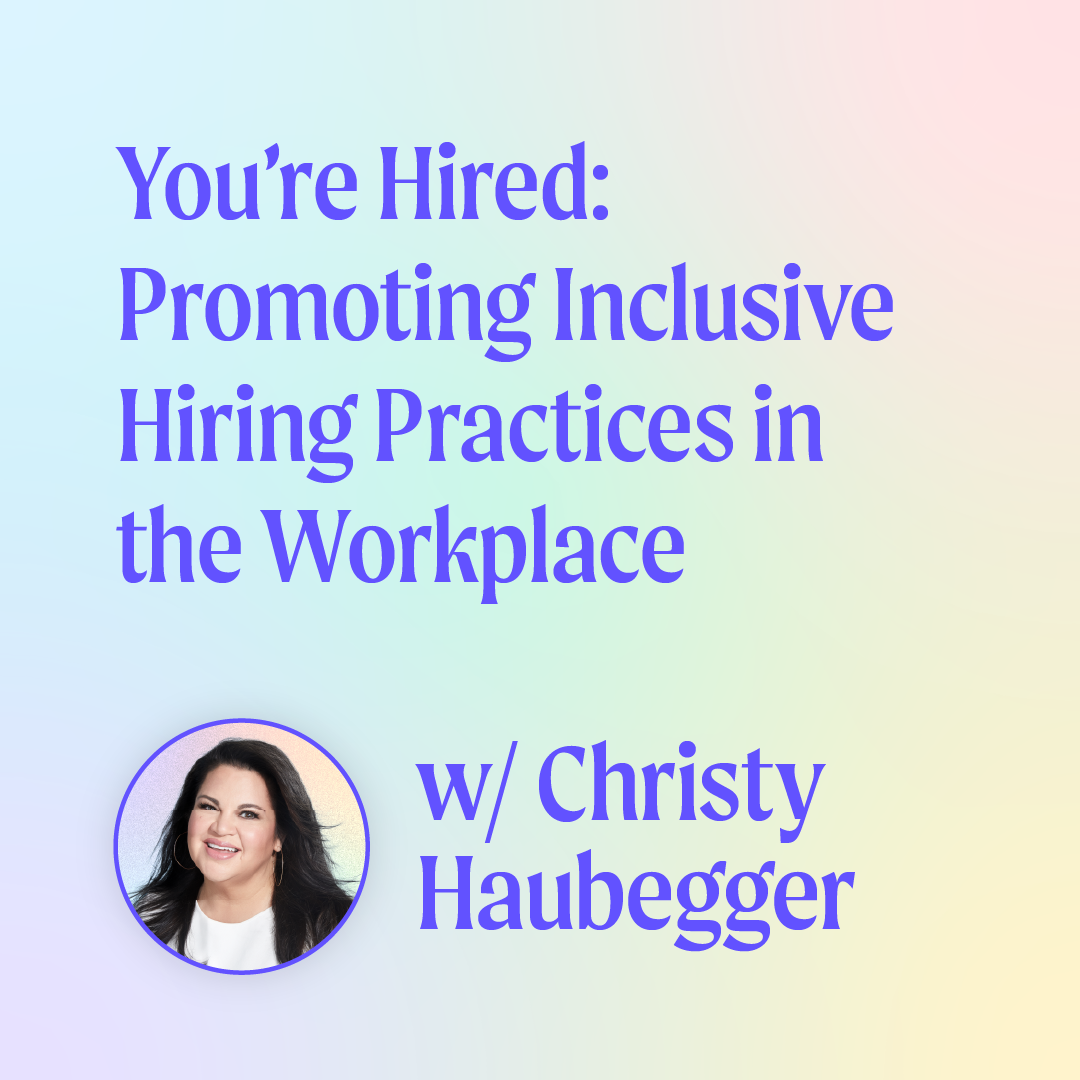
Episode Transcript
While IncludrPod is audio-based content, we’ve also transcribed each episode so everyone can enjoy the series. If you can choose, we recommend listening to the audio, which may include emotion and emphasis that cannot be captured on a page. Transcripts are generated using a combination of speech recognition software and human transcribers and may contain errors. Please check the corresponding audio before quoting in print.
Jeffrey [00:00:02] This is IncludrPod, a podcast that explores inclusivity, diversity and how to find common ground with just about anyone all through a scientific lens. I’m your host, Jeffrey Bowyer-Chapman. I’m an actor, podcaster, model and guest judge on the hit TV series RuPaul’s Drag Race. As a Black queer man, I know firsthand that with deep inclusion and acceptance from others, I can show up not only as my best self, but as my whole self. Creating a safe space is the foundation of authenticity and everyone is welcome here. Welcome to the IncludrPod.
Speaker 2 [00:00:50] In my experience, the same tone or dialogue that’s understood as confidence or strength in a man can often be understood as aggression when it’s coming from a woman in the interview setting. There can be a feeling that you need to be modest or downplay your accomplishments or your needs. Now that I’ve reached a point in my career where I’m sometimes on the other side of the hiring table, I’ve noticed that when it comes to salary discussions, men are much more likely to just offer a number with confidence. While women will typically qualify it by saying, “Oh, this is what I’m making now, which is the only reason I’m offering the number or saying this would be ideal, but I’m flexible.”
Speaker 3 [00:01:29] I really believe that employers should be doing a lot more to diversify the hiring process because the process of hiring someone is long. And I feel when employers are trying to hire quick, they’re not thinking about bringing someone in with a diverse background, they’re looking at strictly experience on whether the person fits into the company. But I think looking at only experience hinders how employers can be more diverse. And experience has only one dimension to hiring someone. So if everyone in your company looks the same, how are you going to serve those clients, those customers and really understand them if you don’t have someone in your company who represents them?
Jeffrey [00:02:13] It’s no secret that the workforce is in the midst of major shifts as companies come to terms with their own blind spots. Across sectors, companies are hiring diversity and inclusion specialists who can champion for equality across their firms. Recent research from the Harvard Business Review showed that 90 percent of the firms surveyed consider it a top priority to increase gender and racial diversity within the company but none of the firms showed a preference for hiring women or minority candidates. What’s more, in STEM fields, women candidates needed a higher GPA than white men to be awarded the same rating in the hiring process. As this research clearly shows, despite good intentions and a desire to engage in more inclusive practices, many major companies are still falling into the trap of internal bias and prejudice. So how can we continue to challenge employers to actually be more inclusive in their business operations and walk the walk rather than just talking the talk? Today on IncludrPod, I’m sitting down with someone who knows all about this. Christy Haubegger is the Executive Vice President, Communications and Chief Inclusion Officer at WarnerMedia, which means she helps further diversity, equity and inclusion across the workforce to reflect the audiences they serve. After graduating from Stanford Law School, Christie founded Latina magazine in 1996 to promote diversity in the world of fashion, beauty and lifestyle. She later entered the entertainment industry, working as a producer on movies like Chasing Papi and the Oscar winning romantic comedy, Spanglish. Prior to joining WarnerMedia, she spent 14 years at Creative Artist Agency, also known as CAA, where she helped the agency grow its diverse roster by more than 1400 percent. She’s a founding member of Poderistas and currently serves on the board of several nonprofit organizations striving to increase diversity and inclusion. I would just love to hear about how and why you decided to pivot away from law and move into the entertainment industry.
Christy [00:04:37] Well, first let me start out with I got a really marketable degree in philosophy in college. And so, you know, instead of opening a philosophy store, I decided to go to law school. And you know, when I was in law school, I was able to take some business school classes because I actually fell in love with business. And, you know, I thought I was going to be a social justice crusader. I thought I was going to be an immigration lawyer or a landlord tenant attorney and I had a professor who would encourage me to take some business classes because he said, “You know, why do you want to be an immigration lawyer?” And he taught corporate law stuff. I said,”Oh, you know, I want to help my community. I want to give back.” And he said, “Well, you ought to think about getting into a boardroom. You know, you can help one person at a time if you’re a public defender or an immigration lawyer. But if you want to help the lives of lots of people at a time, get yourself to a boardroom where decisions are made that impact thousands of people.” I was like, “I never thought about that.” And it turns out I loved business. I loved marketing. I loved a class on entrepreneurship. I took a class on leadership and I remember thinking, Oh my gosh, maybe I’m in the wrong school, you know, because I’m in the law school. But I wrote a business plan for a plan for a magazine that didn’t exist, which was this idea for Latina magazine, which was a complete knockoff of Essence, right? Because, like friends of mine had grown up reading their moms copy of Essence. And I always thought, like, Why? You know, I wish I had something like that, you know, but for us and never thinking I would have anything to do with it. But the 1990 census had come out recently. And you’re, I’ll never remember this but there was this like Time magazine cover, and it was like, you know, this is going to be the decade of the Hispanic which apparently got rescheduled. But it inspired me, and this professor said, “You know, this is a really good idea. You ought to think about doing this.” And I thought, Well, I mean, if I try it and I fail miserably, I could be a lawyer like I have a law degree, you know? So that was, you know, that gave me a lot of confidence. And amazingly, it came together. I ended up partnering with the founder of Essence Magazine, who invested in Latina, and we launched the magazine in 1996. So I really, you know, it wasn’t that I moved from law there. I just I never even really started law. I got a law degree, and it’s great because it makes people think, you know, I’m smart or something. Yeah it helps. By the way, it turns out actually the rest of your life is contracts like the rest of your business is contracts. So it actually is handier than you realize. But my family was always disappointed that I couldn’t do anything about traffic tickets.
Jeffrey [00:07:09] So one one social justice movement at a time. Right? So inevitably, you moved from running a founding Latina magazine and to working at CAA.
Christy [00:07:21] Actually, there was a stop in the middle. I worked on two motion pictures as a producer. I decided to move into entertainment. It was interesting because in the magazine business, you know, after like the 2000 dot com boom, you’re like, oh, wait, the internet’s going to change publishing like you could see it coming. It was like seeing a freight train coming, you know? You know, it was interesting because I knew that on some level, Latina was important because like, it gave us a chance to see ourselves and a chance to celebrate our beauty and our culture and. But I also realized that nobody but Latinas read Latina, if that makes any sense. And I wanted to think about other kinds of storytelling. So I had an opportunity to work on a couple of movies. The second one took almost two years, and it was this movie, Spanglish. So I was an executive producer on that film. And after having a new product, you know, every 30 days, like you do in the magazine business to work on one movie for two years, you know, which kind of comes and goes. The weekend was like, just not the right thing for my metabolism. So that’s when I went to CAA.
Jeffrey [00:08:31] And what were you doing in CAA specifically?
Christy [00:08:34] So they brought me in to try and build a Latin business because they really didn’t, you know, everything from, well, first of all, I had a lot of relationships with people. Are you going to remember like I, you know, put Jennifer Lopez on her first magazine cover or back in 1996. I’ve known her since since, you know, before Selena, right? Or I’m like, yeah, I know Shakira. We had a party for her recently or, yeah, I’ve worked a lot with Salma Hayek. There were a lot of touch points that I had, and they, you know, really didn’t have a very sort of focused diverse roster. And so I was brought in to try and help that and build that. And I really felt like that was my like broad curriculum in how television works. I also realized like the importance of representation. I don’t mean that like in the like, you know, representation matters, but I mean, like, who represents you and how, you know, a lot of these big agencies, especially are sort of gatekeepers, right? And they’re gatekeepers about who gets in the room, who gets to read the script, like all of those things and I really wanted to change, who are the agents right? Who are the gatekeepers of talent? And by the time I left, I realized there were 36 Black agents and executives like across, I mean, across the organization. And like now, there were two when I started. I like, I like making that shift. I do think that is important because that actually changes. You know, people sign people and represent people that they have something in common with or that they grew up with or were big fans of. And so if you don’t have agents of color, if you don’t have female agents, right, you’re not going to be able to have as much access to the talent that you want to represent. And so it sort of ended up running the strategy for all of that for the agency and became a very senior executive there and ended up there for 15 years. So it was quite a long run. Yeah.
Jeffrey [00:10:39] Wow. Well, I mean, I can speak firsthand to that, that working as an actor for the past 15 years, I never have once had an agent or a manager who was a person of color, never once. And as you know, it’s still a very shallow pool to choose from, even in Los Angeles today. You know, I think it’s something that we it’s quite obvious if you are paying attention but not many people are necessarily willing to call it out for what it is. I know I know firsthand that it takes a certain type of individual or personality to be willing to speak truth to power and call out institutional injustice and inequity when we can identify it around us. But where do you think that you where did you draw from from within yourself to be able to speak truth to power and call out what you saw in front of you for what it was?
Christy [00:11:26] Well, you know, it’s interesting. I think, you know, particularly in Hollywood or you have a lot of really good people who aspire to be inclusive. And the thing I say a lot is that, you know, everybody yearns for transformation and nobody wants to change. You know, and everyone agrees on how you’re going to 100 percent agreement. Oh yes, should be our should our industry would be more diverse. Yes. Is our audience more diverse than this? Yes, yes, yes. But then when I say, I always say like, oh, you know, like, you want transformation, but you don’t want to change and you don’t want to have to do things differently than the way it’s always been done, because that’s hard, it’s risky and you know, all that stuff. But it’s also comfortable, right? And I think people will choose. I don’t know. I mean, I think I have a personal sense of mission about this but I don’t need you to share my sense of mission or social justice. I want you to want to win. And as soon as you recognize that having a more diverse and inclusive workforce, a more inclusive and diverse client list, a more diverse and inclusive set of storytellers in this world, that’s going to be how we win. I mean, it is a nice thing to do, but I don’t. You don’t need to do it for that reason. You need to do it because you want to win, because if you’re doing it, because you think it’s a nice thing to do, you won’t sustain it in my experience. You know, we changed the intern program at CAA many years ago. We changed it because people like, what? How do we get, you know, how do we get a pipeline? And like the intern program was really, you know, 98 percent referrals, meaning someone recommended you. And so you can imagine well who’s referring you because you end up in the same ecosystem and you don’t get any new blood. And we know that diversity drives innovation, like that’s how you get new ideas and new thinking and new perspectives. And I, you know, it was one of the people agitating and moving to build a real intern program that people would apply for that would be competitive. You know, I used to joke, I’m like, We’re not even getting good white kids. We’re just getting people that people know. You have to acknowledge that talent in this world is equally distributed but the opportunities haven’t been. And there’s just no chance that all the talent grew up in Beverly Hills. Like, there’s no chance, right? There’s just not just mathematically, that’s not the case.
Jeffrey [00:13:43] You know, contrary to popular belief.
Christy [00:13:44] Yeah. And so, you know, when we built this intern program, I remember a colleague of mine. And we finally like we had to hire someone to go to university recruiting Ruben Garcia, who’s still there and a much bigger job now. But we had to hire someone to manage the interim program like you’re going to make a real internship with a curriculum and a program and structure. You need someone managing that, you know, like where to invest money to make that happen. But it was so interesting. I had a colleague come up to me and he was like, Christy, hasn’t this diversity thing going far enough? And I was like, What are you talking about? Have you look around here, what do you mean? And he said, Well, I just don’t know that my son is going to be able to get into our intern program because we had 4000 applications for 80 spots. And I was like, no, he can get in. He just has to be as good as everybody else. And I’m actually kind of compassionate in a way, because if you grew up in that business as this colleague had, you grew up with the idea that this is actually one of the perks of the business that you can get your kid into it. And so for him, it is actually it feels like a loss because I can’t do that now, my kid has to apply and do an essay and like do an interview? Like yes, yes. And that’s going to make our workforce better. And it did. And so, of course, you know, the interns suddenly looked like the best and brightest. And the interns were representative of the population. And that’s because when you choose the best of the best, you get that incredible variety. So but I’m compassionate to the person who feels like there is a loss in a way because for him, it was a loss.
Jeffrey [00:15:31] You just touched on this. But I’m hoping that you can expand on it because people ask me all the time in interviews why I think that it’s especially important that we see diversity in entertainment and media. I want to hear from your perspective, if you can expand on why you think there’s such importance.
Christy [00:15:46] There is economic justice, which is why all fields should be open to all kinds of people, right? And there’s again, the idea that talent is equally distributed but doesn’t have access to certain pockets of career opportunity is sort of, you know, an injustice of its own. But I think what we do in our business is quite different because you know, what we do in our business matters in a very different way. It shapes what people think of themselves, what other people think of them. And you know, I always point out there’s almost I think there’s almost eight billion people on the planet. Well, most of them will never come to the United States but they see our movies and our television, and we tell them what a hero looks like. The fact that we’ve never seen a, you know, a Latino superhero and we’re going to have our first one next year, which I’m super excited about in DC, you know, like, are we telling our young people that we don’t think you’re capable of greatness, you know, because there’s no superhero. It’s like, you know, like in some way we are saying that. So I think, you know, what we do in this business matters and in an outsized way because when other industries integrate the workforce, it doesn’t necessarily change the product. In our business, you integrate the workforce, the product changes.
Jeffrey [00:17:04] So when you were in this position at CAA and WarnerMedia approached you to fill the position of the inclusion department, did that position or department even exist prior to you stepping in to fill it?
Christy [00:17:16] No, it didn’t. And it was but it was interesting because there was an inflection point in the the organization, which was that AT&T had bought the company. And AT&T is near the 10th largest company in America, and they were a huge DEI team and a fantastic chief diversity officer. And they were, you know, very focused on it and again. You know, if you’re AT&T, you can’t you got to reach everybody like you can’t say, we’re going to only reach this certain population, you know, you ought to be all reach everybody and you work for something like everybody because you have 250,000 employees, right? Like, they better come from all communities. So they approached me and I thought it was an interesting opportunity because WarnerMedia’s just about 30,000 people and CAA at the time was, you know, close to whatever 3,000 people. If I thought I could have a fraction of the impact on a place ten times the size that I think I may have had at CAA, I would be thrilled. I felt like I could have an impact on a large organization that, you know, controls a lot of our our business and so that was the most compelling part for me.
Jeffrey [00:18:27] When Warner Media approached you with this idea, did they explain to you their intentions as to why they were wanting to begin this division?
Christy [00:18:35] No, I just think, you know, I remember I met with John Stankey, who is the CEO. And by the way, I kind of passed on the role a few times. They called me a few times and I was like, “Listen, I don’t have any HR experience. I’m a business person. I think you’re thinking about this wrong because it, like reported it to HR. And it was it was definitely not the sort of comprehensive way that I would want to approach this, you know, massive opportunity.“ And I met with John Stankey, who was actually very funny, and like I said, I’d pass on the job a couple of times. And he literally sits down. He’s like, “I understand you don’t want this job.” And I was like, “No, because I think you’re thinking about it wrong.“ And, you know, I think I, you know, I loved CAA. I was super happy. I wasn’t like, I got to get a job, you know? But I think that gave me the freedom to say, Well, here’s what I would do, right? And I think you have to think about not only the workforce, but who are the storytellers you’re in business with and what is the marketing communications and how do you think about that? And how is the organization perceived in the in the world? And I also, you know, was able to quantify, here’s you know, here’s my rough math on the value you’ve missed by not fully delivering on these audiences just in the United States alone. I was like, if I were to ever make a jump like this, would I have the resources I need to build what needs to be built here? And he said, You will have everything you need. I was like, Really? You said, Yeah, you have everything you need. And I said, Well, this could cost, you know, I grew up with what I thought was a crazy, big number and he was like, You like, “we have twenty five billion and free cash flow every year. I bet we can afford this.” OK, you’re right. You’re right. I got to spend the time saying like, you know, from the ground up, how would I approach this if I wanted us to fully realize this? So I divided it, and I did a listening tour and I went around the company and I talked to different people. I went to every major office in every major city. I went to London and I went to New York. I went to Atlanta. I obviously spent time in L.A., I did a lot of town halls and just I wanted to understand what the needs and the opportunity was also just like, what’s happening now? I know there are people doing things, but I, you know, I always said, like, you know what, you don’t want to be engaged in a series of random acts of diversity. I felt like you had to bring together these kind of four pillars. One of them is the workforce, like your current existing workforce who works there, right? And it’s everything from like who works on the creative side, which is actually not the majority of people, right? You know, there are people who work in taxation and finance and legal and, you know, everything else. So workforce opportunities were at-large, then you have to bring together the pipeline. Like what are all the pipeline programs and how do you get people into the not only into the organization but into the industry? Because as a steward in a large organization in the business, you have some responsibility to make sure that happens and hopefully they end up in your pipeline. And you know, and then the content pillar, right? So what kinds of stories you were telling and how do you tell them authentically? And so I was able to hire like four SVPs, one over each of those pillars. And I was I mean, it really is like the Justice League of these. I hired a woman who ran diversity inclusion at Fox, and she’s doing the workforce piece. And Karen Horne, who ran all of these programs at NBC Universal for many years, and she’s running all the Pipeline Pro and the programs piece. And Samata Narra, who was an SVP of comedy at Fox, is running all of the comms because she’s been on the other side of the table. She knows what tools, you know, our executives and the creative community need. But she also used to be an agent, which is also helpful just in terms of like all the relationships. And then James Anderson, who’s a 20 year veteran of the company, is running marketing communications and actually he’s gotten a bigger job since then. He’s now running because I have communications now, too. So he’s running all of my corporate communications. But it really matters because like, how do we market? How do we show up somewhere? What do we program at Sundance or CES? Like, how do we do those things matters, because if we don’t do those with a voice that represents you would get a very, you know, incorrect impression of the company that we want to be.
Jeffrey [00:22:57] Right? Well, I think you just hit the nail on the head with the how part because I think that so many people can see the issues that we need to address, but they don’t necessarily know how. I love the term that you used a listening tour, that you went around the country on a listening tour and I’m sure it sounds that you gleaned a lot of valuable, priceless information and wisdom in that process, so my question is for employers to have the best of intentions but still struggle to implement true inclusive hiring practices. What do you think is holding them back?
Christy [00:23:31] Well, I think there’s a lot of things, right? One is I think that the ecosystem has only been built kind of recently. So I would say that most people want to do the right thing and they want to hire more inclusively and people will even though they say this a lot. If I need to make one phone call one extra phone call, I’ll do it if I got to make five extra phone calls. I don’t know. You know, like you, you lose me after three, right? And I think a lot of what we are doing in terms of the tools we’re building. But in, you know, in my past, like when I was at CAA, I built this thing called the Amplify database, which was a database of every writer of color. You know that we could find that was not just CAA clients, but writers of color by level, by genre, by ethnicity, by gender. Because if you’re like, I really need an Asian female comedy voice mid-level supervising producer, you know who is there and like, people would call me. And it was like, “Oh, we didn’t have anyone like that available.” I don’t want to tell you not to try and find that voice. I, you know, started keeping lists at lists of list upon lists. You’re like, you know, so we’d have clients calling, you know, I really want a Native American comedy writer and I’m like, Oh, I don’t have one available like the, you know, the ones we have are booked there on long term shows. And, you know, but I don’t want you to not hire a great Native voice. Here’s three or four people I know about, right? And I would do this. So I made this database that I published that had about 900 folks on it, and it was people with literally, you know, credits in the last five years in US you know television and it was television writing only. And what was really interesting about that is that I was like, if I have to go cut people’s meat for them because you, I just want to take the excuse away. You can’t say I couldn’t find any. Here they are. Here’s their managers. Here’s their agents. Here’s their lawyer. Like, you can find them. And I think the idea that I want to do this, but it’s hard. Well, I can’t, you know, do much like in terms of making you do it, but I can certainly make it easier.
Jeffrey [00:25:52] As I expected, Christy had some pretty insightful things to say about diversity, inclusion and bias. While many people may agree that we need more diverse representation, you are actually willing to feel the discomfort required to make these changes. This gives us insight about some of the barriers that are still standing in the way of more diverse representation on screen behind the scenes and in the world at large. We need leaders that are willing to do the hard work instead of just gathering in a boardroom discussing the idea of change. Hearing Christy say she measured her life in impact was truly inspiring. Judging by the work she’s done so far in her career, she definitely walks the walk. Listen to learn more about the incredible impact she’s had and what changes she hopes to see in the future. From your perspective, could you describe some of the progress we’ve seen in terms of inclusivity and representation in the entertainment industry since you first started your career?
Christy [00:26:53] Oh yeah. I mean, oh my gosh, it’s me. Listen, I feel like I’m still having the same conversation 25 years later. In many ways, you know, I really I was just think about this the other day. Like, I remember, like Ricky Martin hit the scene in like 1998, I think or something like that. I was like, Oh, this is great. Like, everybody is going to get it now. I’ll never have to explain this again.
Jeffrey [00:27:18] You know, I remember when the original Queer Eye For The Straight Guy came out and I thought the same thing.
Christy [00:27:22] And you’re like, Oh, this is that we’re done. We got it. We got it. Everybody said it. Yeah. Like, I’m an optimist by nature. If I didn’t think that we were capable of great transformation as individuals, as organizations, as societies, I wouldn’t either. And I think we actually do have to celebrate one of the things. It’s really, I think hard for people is acknowledging things that aren’t yet perfect. You know, the thing about the perfect being the enemy of the good, right? And so people say, “Well, we’re not there yet, but we’re trying.” And I’m like, yeah, but if you don’t applaud people for the progress that we’re making, I mean, look at the on camera representation of African-Americans in television now it’s greater than that of the population. Right. I mean, that’s amazing. And we’re still way behind on Latinos and Asian-Americans, but hey, that’s great. You know, we released this 105 page report of like all the things we’re doing and it’s, you know, it’s incredible cause you’re like, I couldn’t have imagined this. But you know, when you look at the statistics in there, you’re like, Wow, like, this is so much better than a few years ago. I mean, you could look at that. But I think the more important measure in some ways is the qualitative stuff, which is, do I have to explain why still?
Jeffrey [00:28:42] On the flip side of that, on a personal level, how have you seen unconscious bias or discrimination play out in your own life and career? Because I’m sure you must have.
Christy [00:28:51] It’s only an hour long interview. What are you talking about? I mean, you know, it’s it’s I mean, it’s also very hard to separate like, you know, being a woman, being Latina, being you know, I tend to assume the best of intentions of people. I often see ignorance but I assume that you’re not just mean, you know? And I try and approach these situations. I have so many funny stories, and I will tell you one of the things that’s happened to, well, one story I’ve told a lot is, you know, when I was selling advertising and I was like running a magazine and I went to Detroit and I visited all the automakers, right? I went to see Chrysler, Ford and General Motors. And every one of them was buying more advertising, which meant we could, you know, publish more pages. And like, you know, I was like, This is a great day, and I go back to my hotel. I get the ice bucket and I go down the hall to get a bucket of ice for my room. And as I’m walking down the hall, this woman stops me and says, “Oh, wonderful, dear, are you bringing those to all the rooms?” And I was like, “No, no, just my room.” Like, you know, and I mean, the number of times I’ve been confused for staff. Actually, one of my favorites and this has happened to me a couple of times where I was speaking at an event like a banquet or a dinner, right? Or I’m giving a keynote speech at a conference I never had people ask me. And one time, this is great. Actually, I was there. “Excuse me, can I get, you know, blah blah blah, right?” Can I get something as I’m walking through because I’m heading for the stage? You know what I mean? Like, I’m literally walking through everyone’s seated, but I’m walking through because I’m going on stage, and I remember this one table asked me, “Could you get us more water?” And I said, “Sure,” there’s literally water over to the side. You know, there’s like a whole set up of water pitchers. And I grabbed a water pitcher and I brought it back to the table and I was like here you go. And I was like, you know what? I’m not going to say a word because there is nothing I could say that is better than me walking on stage right now because I’m like, you know what? like, I can’t spend my time teaching you. I can’t be like, “You know what? Here’s why you should think about that before you make an assumption.” It’s funny because I think all the time when things like that happen and they don’t happen to me as much as I’ve gotten older, which is kind of interesting. But I think like, you know, I need to use that as fuel. I need to use that as inspiration because until that woman in the hallway sees me and thinks, “Wow, that looks like an entrepreneur. I bet she’s a CEO. Or maybe that’s a lawyer, or maybe that’s an executive at a big company.” Until someone sees me and says that’s equally likely as her working as a housekeeper. I’m like, we’re not done yet. We can tell a woman sees me and says, “that’s what an executive looks like.” So I’m like, ok, this is part of my job in this world. It is in my own life changing what people see and think.
Jeffrey [00:32:01] What a job.
Christy [00:32:04] You’re doing to do, what are you talking about?
Jeffrey [00:32:06] I mean, you know, I mean, I understand it and it’s very intentional. I can tell that it’s very intentional with you as well. It’s a quote, an affirmation that I’ve used for literally over a decade for Martin Luther King Jr., which is “to be used for a purpose greater than myself.” And we don’t necessarily have control over what that change or what that purpose necessarily is. But you can feel it. You can feel it when it’s in motion, you know? You touched on it earlier. You mentioned that you’ve also been quoted as saying the progress is not necessarily about random acts of diversity, but more so about creating a deeper sense of systemic change. So how can we begin to look at inclusion from a more foundational perspective and promote a more diverse workforce in a workplace in the first place instead of trying to work backwards and fix the broken system? Yeah.
Christy [00:32:53] Well, you know, I it’s funny I had dinner with some folks in the venture capital space and I was saying like, this is, you know, they’re part of like founding companies, right? And it is much easier to make that part of the DNA than to try and stitch it on later. Right? Patch it up afterwards. I mean, I think, well, you have to start with that belief. The thing I said, which is that the talent is equally distributed, right? And if all of your quote-unquote talent that you’re hiring comes from one zip code or one economic class or one ethnic group, one gender like, you know that you’re not getting the best. And I think there are a lot of tactical things, right? And people know a lot more about, you know, the Rooney Rule is not just about having one person in the slate who doesn’t like the others, it’s about having two. I mean, I say this about, you know, when I was at CAA, we really got a lot of momentum after we had a few people who are willing to make that beachhead in that department where there maybe had not been a lot of diversity. And so, you know, I said, just think about like one’s a token, two’s a minority, three’s a good start.
Jeffrey [00:34:05] Three’s a good start.
Christy [00:34:06] Three’s a good start because the problem is when you’re the only one, if you’re one out of 25 people in that department or in that organization, it’s really hard. It’s lonely. People, you get a lot more of the diversity tax. You get scrutinized, you get you’re burdened with the “Hey, we need you to go to college recruiting.” You know, your other colleagues are out selling product and we need you to take your time to go do this. But you’re not supposed to miss any of your sales goals. Like, there’s so much stuff that comes with being the only one like the lonely only is a really hard place to be, and that person often has very high turnover if you’re the only one. You need a cohort and you need a community and you need it to not be extraordinary, it needs to be normal. And you know, anybody who hires came in because we’ve never had this role before, and they were like, Do you want to be chief diversity officer? What do you want the title to be, you know? And I said, I want to be chief normalcy officer. If we looked like the talent in the population, that would be normal. What we’re doing now is not normal. Like, I’m trying to get us to normalcy. They nixed the normalcy idea, but that’s going to confuse people.
Jeffrey [00:35:25] It’s more about representing the global majority as opposed to the status quo minority that are so often represented.
Christy [00:35:33] It’s almost like this it would be normal. I want to achieve normalcy officer.
Jeffrey [00:35:37] Yeah. So we see, you know, with the idea of, you know, one being the loneliest number, but it’s so often the case for marginalized individuals in the workforce. Let’s talk about women specifically in the workforce. How can we support women and foster a culture of inclusion rather than division and competition?
Christy [00:35:57] There was a perception that the pie was a certain size, and if we’re going to get one slice, we get one slice only and I got the slice. And if you show up, you’re going to try and take the slice.
Jeffrey [00:36:09] It’s scarcity mentality.
Christy [00:36:10] Yes, absolutely. And actually, we have abundant and having more diversity creates more abundance because your market gets bigger, your revenue gets bigger, your company gets bigger, organization gets better. Like all of those things, like having an abundance mindset is really, really important. But I also find that the same thing applies the like, you know, one the token, twos’ a minority, three’s a good start. It’s really hard to be the only one in the room. I’ve been the only one room a lot. It’s really hard. And I also think that the way that everybody can impact this is not just people who are employers and managers and hiring or creating an inclusive workplace, hopefully, which is important. You know what everybody can do to make women more successful in the workplace? Do your work at home. If you live with a woman, are you really distributing things equitably in the household? Or is she exhausted all the time? You know, it was so interesting we had done this survey around work from home and so many women on my team, you know, I saw their responses and it was like, “Well, would you like to work from home like permanently?” Like, you know, so many women wrote some version of I’d be happy to work from home longer, if you can promise me these other people aren’t going to be here asking me for lunch, asking me where their sneakers are. And it was really interesting because I found it really intriguing. I had a colleague who held his baby on a zoom and everybody’s like, “Oh, you’re such a good dad, look at you.” Every woman who’s juggling a baby while being on Zoom meeting because she has no daycare in it, in a quarantined, shut down world. Everybody’s like, “Oh, look at her, she’s kind of a mess. Like, she’s like, you know, trying to juggle.” And I just thought it was so interesting because everyone thought that the man who held a baby was a hero and the woman who held the baby was a mess. And like, you know what you can do to promote equality in the workplace, make sure that the equitable distribution of responsibility in home is there so that this woman is not going home and being like a hundred and fifty percent committed to trying to get everything else done because you’re not pulling your weight. So that’s my life.
Jeffrey [00:38:41] It seems like such a reasonable and obvious hack and one that I’ve never heard before, to have that awareness that mindfulness and empathy really implemented into every area of your life, not just, you know, walking through the doors of your office and turning it on and walking, turning it off when you as soon as you got home.
Christy [00:38:59] No, it’s like it starts at home, too. But I also think it’s notable that, you know, we were looking at a lot of the effects of the pandemic on women leaving the workforce, right? And it’s disproportionately women leaving the work for it because they’re the ones trying to manage everything else. And they’re the caregivers and they’re still managing, statistically speaking, still managing more of the housework. And so, by the way, we saw one thing that was about, female academics submitted 40 percent less papers. Right, and you’re like, we lost we lost all this brain power because these women are probably trying to like, manage a household while doing their research because they’re working from home and it’s just like, it’s too much.
Jeffrey [00:39:45] Yeah, yeah. Well, it’s often said that we thrive as a team, but we suffer as individuals. How can we remind ourselves of the empathy and interdependent support within a team culture?
Christy [00:39:58] Well, first of all, one of the ways that you can do that if you’re a manager or if you’re just a colleague is creating an environment where being your whole self. And I actually think in a weird way, there’s very few silver linings to, you know, a pandemic, right? But one of them is that, you know, having meetings online or in Zoom and like, you know, you and I are in little boxes right now, we’re in the same size box, right? And like everybody is in the same size box. So it’s actually sort of an interesting, equitable distribution of at least visual power. It’s not like there’s one person at the head of the table clearly in control. I think that’s kind of interesting. But the other thing is that, you know, I see your plant and your painting, in the background and I see your dog and I see your baby and suddenly you’re a more whole person to me. And I think, you know, everyone talks about like bringing your we want people to bring their authentic selves to work. Well, you can’t hide from your authentic self when the dog is barking and the doorbell is ringing and you’re trying to eat your lunch while you’re, you know, there’s like the slight benefit to some of this is that I mean, I just think in terms of building trust and empathy, like seeing someone’s whole self can be facilitated through work right by asking people, like, “What is your experience with this? How does this feel to you?” There are so many ways to get there, but I think that again, one of the weird benefits of a pandemic is that idea that I can’t be a different self because you’re actually in my home. That is a unique moment we have to kind of reset. If people think there’s a difference between your real self and your work self, nobody will trust you. Literally being authentic and showing up as your whole self allows people to connect with you on a human level. And I think that engenders trust and empathy and a safer space for everyone to work.
Jeffrey [00:42:06] I couldn’t have said it any better myself, and it’s so clear that’s exactly what you’re striving to do in your position at Warner Media. And it really is the prerequisite to being able to bring your authentic self. At least I can see myself and that in my own lived experiences, I know that trust is built in tiny little moments all throughout the course of the day, and only when you build that foundation of trust and safety that I that I feel like I’m able to bring in not only my my best self but my whole self to the table.
Christy [00:42:33] I will say one more thing about this, which is like in our business, right? And you’re a creative professional, right? So I think it’s even more important in a creative environment because the opposite of creativity is fear. If I don’t feel safe and secure and like I can be myself, you’re not going to get my best work.
Jeffrey [00:42:56] And you’re right, I know that when I’m on set and there’s a producer around who is exercising abuse of power and ruling by fear that I don’t bring my best work or my best self. Do you have any tips or anything to say about identifying these individuals in the workplace? What we do about it when we when we find them and how we can, you know how we can speak truth to power and yet do so in a way that we’re we’re protecting ourselves and hoping to, you know, set a foundation of safety in hopes of of preventing others from having to experience the same ills that we’re experiencing.
Christy [00:43:33] Well, I think there are a couple of things, right? One is, you know, we found that a lot of the issues that we’ve had, whether on set or in a writer’s room, are often because the person is not a great manager or they’re like, you know, they don’t feel confident in what they’re doing. And so we started this series this past year called the equity mindset for creative leaders and which is about like teaching people how to manage. Most people don’t want to be jerks. They just they’re either afraid or they’re scared, oh my God, we’re not going to make the day like, you know. And so giving people a bit of leadership development opportunity to try and become a better leader, a more effective leader. The other thing is, you know, listen, like it’s a very different world. You may have grown up where people yelled to get things done. That may be the way that you were kind of raised professionally. But guess what? That person’s going to like videotape you and post it on social media and then your whole business will be over.
Jeffrey [00:44:34] What would your message of encouragement or positivity be to future generations of young people or Latinas specifically who are just beginning their careers in the industry?
Christy [00:44:44] So I would say, you know, there’s never been a better time to be who you are than right now. And I would also say someday your grandkids are going to ask you, like what was it like back when you were a minority? And what are you going to tell them you did? What did you change? I always think about that because, like you literally look at the census information, it’s mind blowing. You’re like, “Oh my gosh, they’re dealing with such a different world.” Like, I love meeting people who tell me that they I just met a young woman who writes for Deadline and she’s Latina, and she’s like, “Oh my gosh, I used to read my mom’s copy of Latina when I was like, 12 years old, and it means so much to me.” And she was like, “It made me want to get into journalism.” And I was like, “Really? Oh my God, you know?” And like all, because she was there. Of course, after my vanity made me feel old, I was like they’re so cool. Like, I love that this generation is like, Yeah, of course, we deserve our stories to be told, you know, of course. So that is exciting for me. And like I said, there’s never been a better time. Come, come, be part of it.
Jeffrey [00:45:53] Lastly, this is something that we asked all of our guests, but you just may be the most qualified person to answer it. What does deep inclusion mean to you?
Christy [00:46:01] Oh my gosh. Deep inclusion. I mean, I think that true like equity inclusion, like deep inclusion means to me that your background, your identity, your gender, your parents’ income is in no way determinative of your opportunities in this industry or anywhere. When I cannot be limited by that, but only by my own willingness to work in my own talent. You know that that’s when we will have made it.
Jeffrey [00:46:35] Well, you are the most mindful institutionalist I think I’ve ever met, Christy Haubegger, thank you so much for sharing all your time and your wisdom and expertise with us today. It’s been an absolute joy.
Christy [00:46:46] Oh, I’m so happy to see you.
Jeffrey [00:46:51] What a powerful conversation I had with Christy. I know I’ll be thinking about her story for a long time to come. But for now, here are three key insights we can take away from the episode. One is a token, two is a minority and three is a start. I loved this tweet worthy comment from Christy about promoting real diversity, not just paying lip service to the concept. She noted that while we’ve made great progress in recent years, there’s still a long way to go towards achieving true deep inclusion. Let her words be the reminder for us all to be looking out for not just the one, but one more. Inclusion in the workplace begins at home. Before addressing issues of diversity in the workplace, take a look at the women and marginalized people in your personal life, including yourself. How were you supporting them? How were you making the world a better place for them? Change begins with self-reflection, and taking an honest look at your inner circle is a great place to start. The opposite of creativity is fear. If people don’t feel safe and supported at work, they simply won’t be equipped to put their best foot forward creatively. Building a foundation of safety and security in the workplace is an essential step in creating a more diverse workforce. And finally, while IncludrPod is a podcast dedicated to exploring diversity and inclusion in the workplace, we believe it’s equally important to acknowledge progress as it is to call out injustices. There are so many people and organizations today that are operating through a lens of empathy and deep inclusion, and the more we focus on these positive aspects, the more they will grow. Because where attention goes, energy flows. Thanks for listening to IncludrPod, the podcast exploring inclusivity, diversity and empathy, so we can all be kinder to one another. If you like what you heard, make sure to subscribe, rate and review the show wherever you get your podcasts. For more information, log posts, shownotes and more visit include or talk special thanks to the amazing team of producers who helped bring include her pod to life, including Jules Ho, Elle Carlos, Brittany Nguyen, Stephanie Andrews, Mackenzie Patterson and Stacey Orth. That’s a wrap on the first ever season of IncludrPod. Thank you all so much for listening and supporting the podcast. We hope you enjoyed hearing from our incredible guests and learn some valuable lessons and insights to help make deep inclusion part of your everyday practice. Stay tuned for more thought provoking conversations next season, which will be dropping in 2022. In the meantime, follow Includr on your preferred social media platform and visit us at includr.org for more content. I’m your host Jeffrey Bowyer-Chapman. See you next time.



